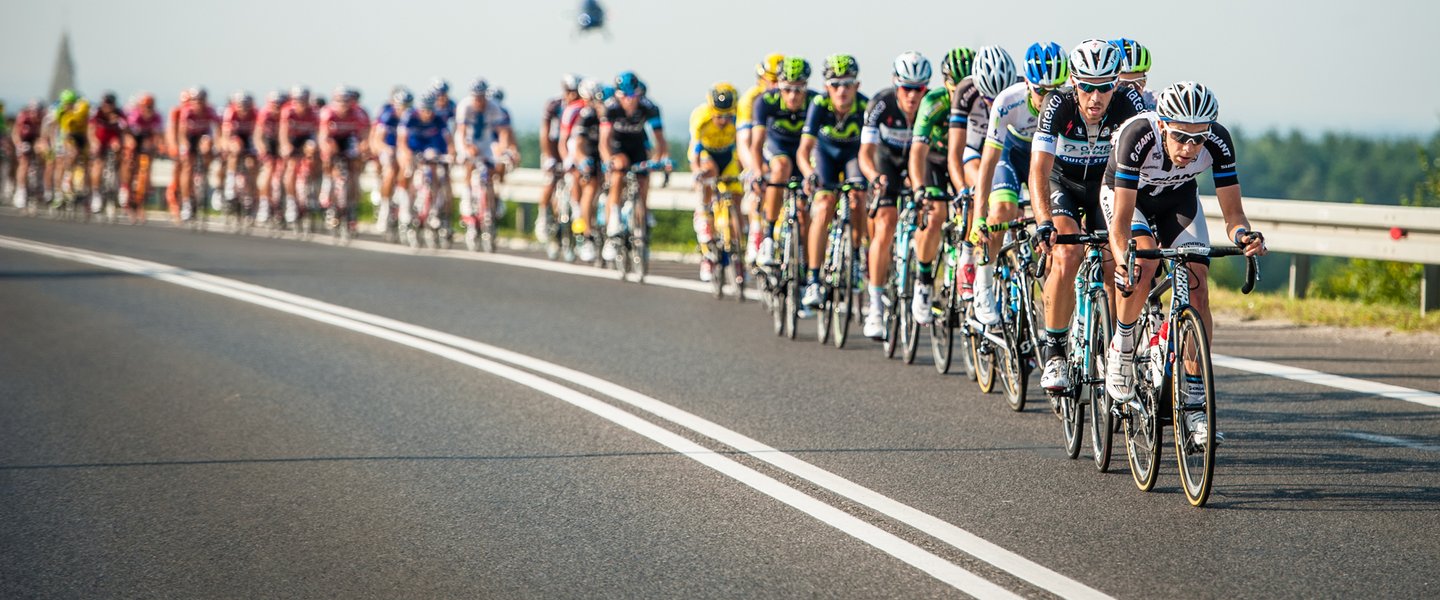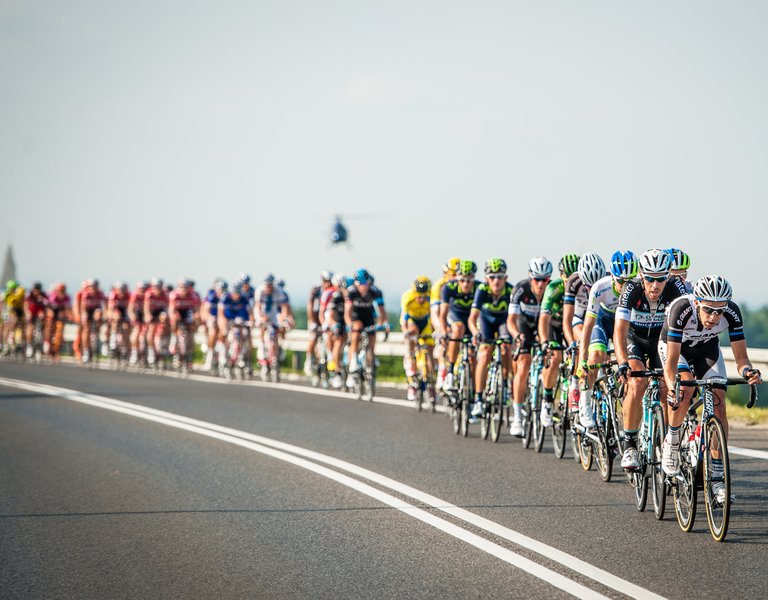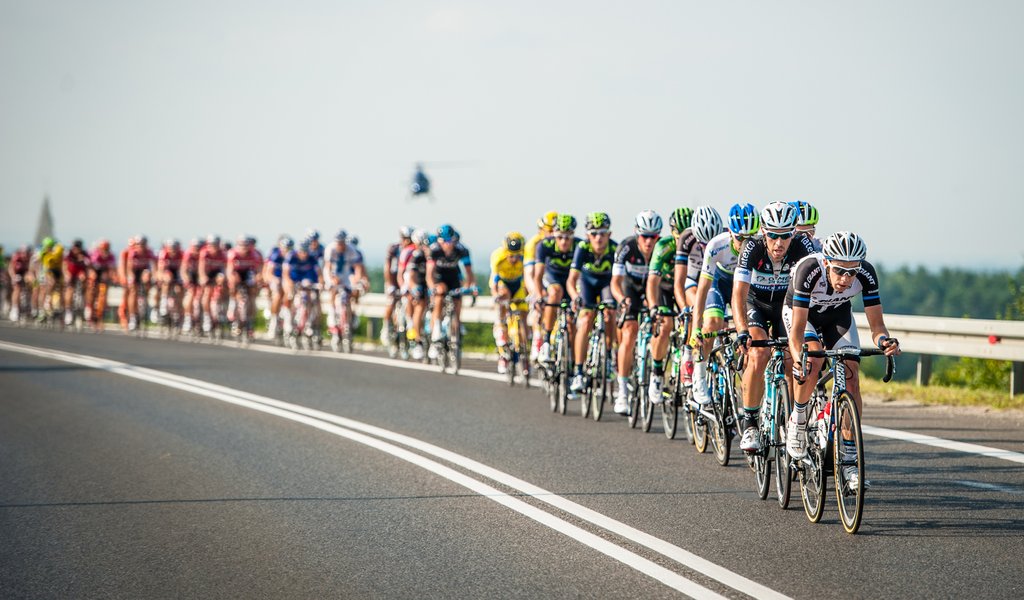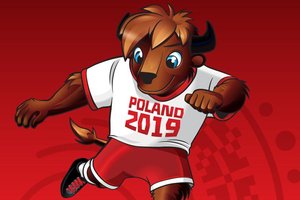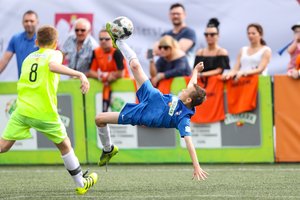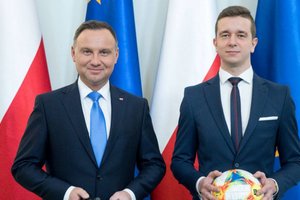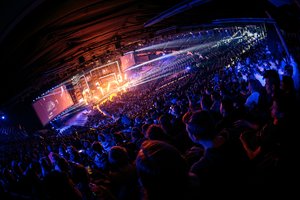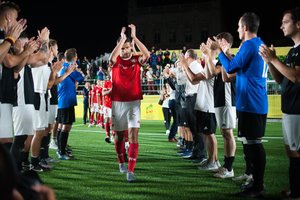Poland’s new found love for cycling
Czesław Lang, the Director of the Tour de Pologne, which will take place between 2-8 August, tells Polska.pl about Poland’s newfound love for cycling, the most arduous climb and his beloved Kashubia region.
Magdalena Majewska, Polska.pl: What will the 2015 Tour de Pologne be like?
Czesław Lang*: It will be unique on all accounts. This is the 72nd edition of the race. The Tour de Pologne is the oldest cycling event in Poland, with the first race held in 1928. We adapted the format of the race 22 years ago. Since the fall of the Iron Curtain, which divided East and West, our race in Poland has joined the UCI World Tour circuit, alongside the Tour de France, Vuelta a Espana, Giro d’Italia and Tour de Suisse. This has secured our position among the world’s cycling elite and guarantees the participation of the world’s best cyclists in our race. Every year, 17 world tour teams take part in the Tour de Pologne, with other participating teams designated wild cards. This year’s edition of the race will be particularly special as for the first time in the history of the race we will have a Polish world champion participating, Michał Kwiatkowski. This is an added treat for fans and organisers alike. Fingers crossed that he will win the race – but even if he doesn’t, knowing Michał Kwiatkowski I’m sure that he’ll provide us with many exciting moments.
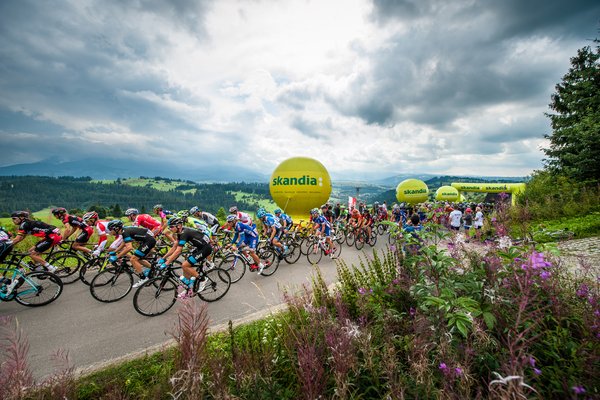 One of the underlying themes of this year’s race is the connection of Warsaw, the current capital of Poland, to Krakow, the country’s capital until 1795.
One of the underlying themes of this year’s race is the connection of Warsaw, the current capital of Poland, to Krakow, the country’s capital until 1795.
At the Tour de Pologne we try to link sporting highlights to the promotion of Poland through sport, while at the same time reminding people of the country’s important historical events. For example, in 2013 we paid tribute to Pope John Paul II and Polish-Italian relations by using the slogan “From Italy to Poland. In the footsteps of John Paul II.” In that year, the first two stages of the Tour de Pologne took place in Italy. In 2014, in honour of the 25th anniversary of Poland’s first partially free elections after World War II, the start of the race was held next to the shipyards in Gdansk (ed. a symbolic location for Poles given its role in creating the “Solidarnosc” movement during the strikes held there in the 1980s). Lech Wałęsa was our guest of honour at that race. This year we are connecting Poland’s capitals, past and present. The race starts in Warsaw, at the PGE National Stadium, and finishes at Krakow’s Main Square.
Which famous cyclists will take part in this year’s race?
The Tour de Pologne is the champion’s league of cycling. The world’s best cyclists participate in the race. These include Fabio Aru, who came second in this year’s Giro d’Italia. He is a great climber, a strong member of the Astana Pro Team and is bound to be a very serious contender for the title. We will also have great sprinters, such as Sacha Modolo and Marcel Kittel, who has already won four stages of the Tour de Pologne.
The Tour de Pologne is also an event where new stars are born. I remember how, in 2013, no one had heard of Alberto Contador before he won the Karpacz segment of the Tour de Pologne. Suddenly everyone started asking who he was. Peter Sagan was also a discovery of the Tour de Pologne – in 2011 he won the race, beating Daniel Martin by six seconds. Marcel Kittel also made his first career steps here. Christopher Froome, this year’s winner of the Tour de France, took part in the Tour de Pologne in 2011, finishing in 85th place.
During the race we also focus on using sport to promote Poland. Cycling is a sporting discipline that literally comes to the people. This year we will cover over one thousand kilometres and 500 areas across Poland. For every stage of the race we will have two hours of television coverage that will be broadcast in 70 countries in different languages. The television coverage will include key locations that we want to present to viewers abroad. We will present them in several languages. A beautiful castle right here, an old church and new investments over there. Viewers watch the Tour de Pologne not only for its sporting value, but also for the beautiful locations and landmarks that the cyclists speed past.
What do foreign cyclists say about Poland?
Twenty years ago, when I started organising the Tour de Pologne, my Italian colleagues (I lived in Italy for 15 years) told me: “We will come, but will you Poles have food for us to eat, somewhere for us to sleep? Do you have roads? What will it be like?” This was the view of Poland at the time by people living on the other side of the Iron Curtain. Italians didn’t even know the difference between Poland and Czechoslovakia. For them it was all simply the Eastern block. In that respect, John Paul II did great PR for Poland. The choice of a Polish Pope brought Italy and Poland closer together. Before that, they thought that everything behind the Berlin Wall was simply the East. This is no longer the case. Foreign cyclists and fans can see that our country is changing, that a lot is happening, that we have new roads, new infrastructure. Perhaps us Poles don’t always notice these developments, and don’t always appreciate them, but visiting foreigners take note that Poland is developing very fast.
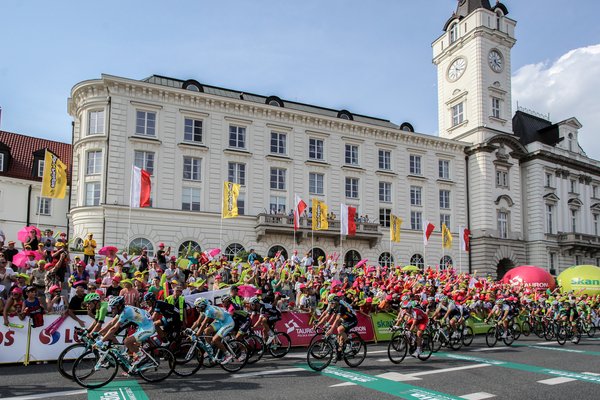
History of the Tour de Pologne
The cycling race across Poland took place for the first time in September 1928, on the 25th anniversary of the Tour de France, on which it was modelled. At first the race was aimed at amateur cyclists. The total stretch of the Tour de Pologne was 1491km, divided into eight stages. The first winner of the race was Feliks Więcek of the Bydgoszcz Cycling Club. After the Second World War, the race was reintroduced in 1947. In 1993, Czesław Lang, Poland’s first professional cyclist, became the Director of the Tour de Pologne. The race soon became part of the prestigious World Tour circuit. In 2014, the race was won by Rafał Majka, the first Pole to win the race since Cezary Zamana cycled to victory in 2003.
The 72nd edition of the Tour de Pologne will start on 2 August in Warsaw, at the PGE National Stadium. The competitors will then pass through Częstochowa, Dąbrowa Górnicza, Zawiercie, Katowice, Jaworzno, Nowy Sącz, Zakopane, and Bukowina Tatrzańska. The race will finish on 8 August in Krakow.
Is cycling experiencing a renaissance in Poland at the moment?
Without a doubt. I recently read that 4.5 million Poles say that they cycle – not just to the shop to buy bread, but also to get around and as a form of pastime. I can see how bicycles are changing, as is cycling gear. People are starting to enjoy cycling and that is something beautiful for me. Almost 3 million people watched the Tour de Pologne race over the course of seven days. This is the greatest motivation for us organisers as, after all, we organise the race for people. When people watch the race and come to cheer on the cyclists – that is our biggest reward. The power of such an event is really enormous. Statistics place the Tour de Pologne at fourth place, just behind the Tour de France, Giro d’Italia and Vuelta a Espana. This shows that Poles love cycling. We also have great professional cyclists. We are seeing the start of a golden era of Polish cycling. The current world champion, Michał Kwiatkowski, is a Pole. We also have Rafał Majka, who down the line could be a serious contender at the world’s leading competitions. He won the Tour de Pologne last year and was also the best climber of the 2014 Tour de France. He has great potential. There is an increasing number of promising young cyclists. Role models always make it easier to draw people to the sport. This probably explains the growing interest in cycling among young people who take part in events accompanying the Tour de Pologne: Nutella’s Mini Tour de Pologne and the amateur Tour de Pologne. This year a record number of participants signed up for the former event, over 500 children in each city – Warsaw, Dąbrowa Górnicza, Katowice, Nowy Sącz, Zakopane and Krakow. The stages of the Tour de Pologne finish in cities and children and young participants are able to ride the routes before the professional cyclists use them. The amateur version of the Tour de Pologne is also very popular. It takes place at the royal stage, in Bukowina Tatrzańska. This year around 2,000 people took part in it.
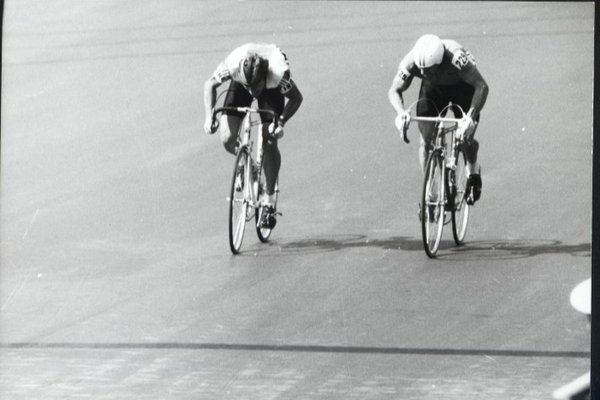 This is Poland’s second golden era of cycling, as the first era was formed on your achievements. In your opinion, who was Poland’s greatest cyclist?
This is Poland’s second golden era of cycling, as the first era was formed on your achievements. In your opinion, who was Poland’s greatest cyclist?
For me personally, Ryszard Szurkowski, who is older than me, and Stasiek Szozda were my heroes, they inspired me to take on cycling. Later on we participated in races together. When one watched such champions compete, it was easy to catch the cycling bug. Ryszard Szurkowski is a legend of world cycling, a great leader, an Olympic silver medallist, repeated world championship medallist and winner of the Peace Race. He inspired many young cyclists, including myself, in the same way that Michał Kwiatkowski and Rafał Majka are doing today. Michał Kwiatkowski has his Copernicus Academy, which trains young cyclists. I strongly believe that Poland’s successful cycling streak will continue into the future.
How much has cycling changed since the time when you used to compete?
A lot. Bicycles have changed, as has cycling gear. But the commitment is the same. Cycling up hills still takes an effort. If it rains, it is still cold. If it is hot, you sweat. These things haven’t changed. Having said that, conditions surrounding races have improved, including nutrition, care and security. There are professional cycling unions. The stages cannot be too long, the average is 180km, and the longest stretch can’t exceed 240km. I remember taking part in the Giro d’Italia and Tour de France – the routes that we had to cover were over a thousand kilometres longer. It took a lot more out of you physically, without providing enough rest and downtime in return. Travel between stages was also longer. I think cycling used to be tougher. Nowadays, in order to win you have to give your all, and then some – but cyclists tend to be cared for better, even pampered. Race organisers pay more attention to guaranteeing the security of participants, making sure that everything goes smoothly.
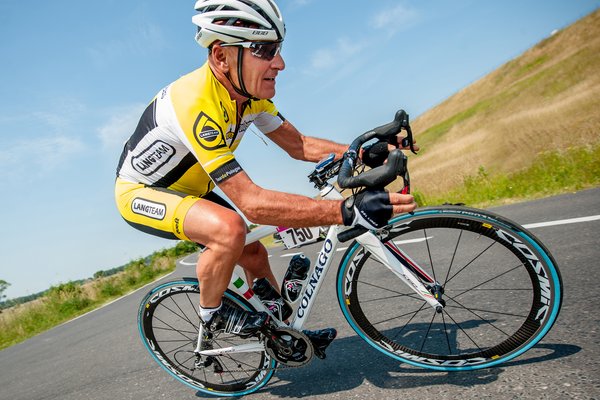 Cycling is a sport that pushes a competitor to his or her physical limit. How do cyclists overcome their own physical limitations in order to go the extra mile?
Cycling is a sport that pushes a competitor to his or her physical limit. How do cyclists overcome their own physical limitations in order to go the extra mile?
In hindsight, I think nutrition is very important. After all, a cyclist is like an engine that requires good petrol. If he is given bad petrol then he cycles badly. Food must be easily digestible by the body, so that it doesn’t weigh the cyclist down. I have been a vegan for three years now, and I feel great. I get on a bike and feel as if I was 30 years old. I don’t feel tired at all. Competitors and their teams are always looking for ways to boost performance through nutrition, rest as well as training methods and schedules. For example, I noticed that Rafał Majka got off to a bad start this year because he was tired from training too much, because of the way his training schedule was put together. He is only now starting to regain his form. It is not always possible to get this right. In order to win, everything has to be optimal. One has to have a good day, good luck, good form and a good state of mind.
In Poland there are now other races that attract an international following, including the Visegrad 4 Bicycle Race, initiated by Poland’s Ministry of Foreign Affairs.
We started organising the race in 2013. The first edition of the race was pretty demanding: the start of the race was in Budapest, the finish in Krakow, in one stretch. The race was very popular. Later we decided to change the format of the race. Now it takes place in stages, some of which are in Poland, others abroad. The race now has a different organiser. More cycling events means more talented cyclists. The whole season needs to be packed with events. I am glad that the race continues to be a success.
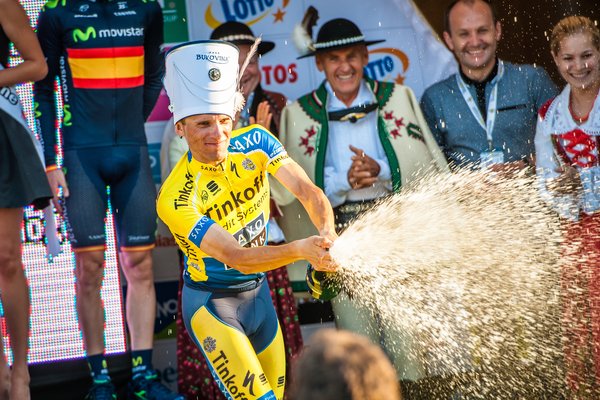 Which routes in Poland would you recommend to amateur cyclists from around the world?
Which routes in Poland would you recommend to amateur cyclists from around the world?
Poland has beautiful mountains. For example the Bukowina Tatrzańska. The Tour de Pologne has a 38km-long stretch there. Its base is the Bukovina Terma Hotel Spa. You start cycling down to Poronin, then up to Ząb, right into Sierockie, down to Gliczarów before climbing up Bukowina slope. It is a very steep climb, and you’ll feel it. After that you go down again to Bukowina. A beautiful route. One can also go up Gubałówka. There are a lot of nice routes there. The climb up Gliczarów is undoubtedly one of the toughest in Poland. You’re on your bike and when you start peddling its as if your front wheel rises in the air. Peddling up these slopes requires a lot of power.
What do you like most about Poland? What did you miss about the country when you lived abroad?
I love Polish nature. I lived in Italy for 15 years. My house was next to Lago di Garda. A beautiful lake, with the view of a snow-capped volcano. Not far from Madonna di Campiglio. An amazing place, paradise on earth. Despite this, I always missed Poland. I missed Polish nature, its diversity, its changing seasons, but also its people – because Poland is where I feel at home. In Italy I was a public figure. Italy became my second home. However, Poland is where my roots are. I was born here. I grew up in Kashubia, in the Słupia Valley. A beautiful place with lakes and forests. I have my horses there and I ride my bike. When I am there, I feel that I am alive.
Interviewed by Magdalena Majewska
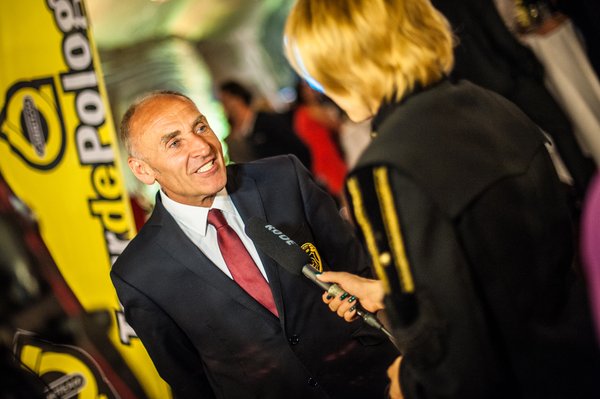
*Czesław Lang – a Polish track cyclist and road bicycle racer, born on 17 May, 1955 in Kołczygłowa in the Słupsk region. Silver medallist at the 1980 Olympic Games, he won the Tour de Pologne in the same year. Two-time medallist (silver and bronze) at the world championships in the team events and Polish champion. He took part in the Peace Race four times, the Giro d’Italia three times and the Tour de France three times. Poland’s first professional cyclist. Director of the Lang Team since 1993 and the organiser of the Tour de Pologne. It is thanks to him that the Polish race has joined the prestigious UCI World Tour circuit, becoming a world-class event. Lang has been awarded the Knight’s Cross, the Order of Rebirth of Poland as well as the "Bene Merito" honourary distinction.
29.07.2015
